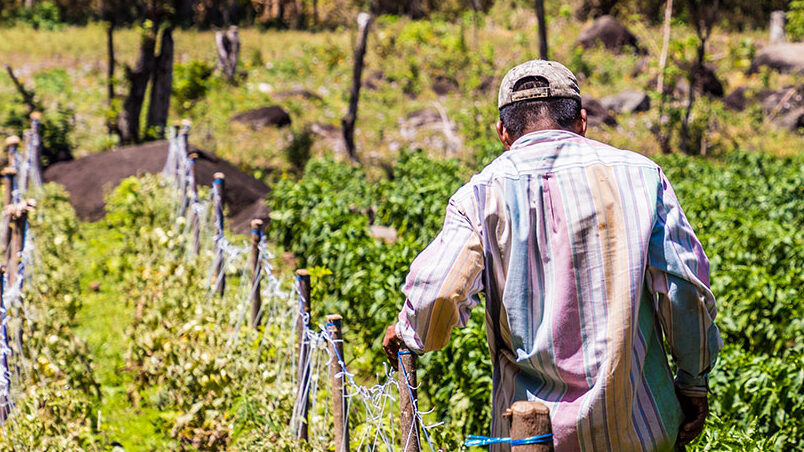Indigenous people in Nicaragua who accused a Green Climate Fund project of fuelling conflict with settlers are being left waiting for a response, despite an escalation in violence.
In June 2021, a coalition of local groups and international NGOs complained to the fund about a $117 million project to reduce deforestation in the Unesco-designated Bosawás and Rio San Juan biosphere reserves in the Caribbean Region of Nicaragua.
The project, which was approved in 2020, aims to reduce extensive grazing and introduce agroforestry systems such as cocoa.
The region is home to 80% of Nicaragua’s forests and most of its indigenous populations. But it is gripped by increasingly violent conflict between indigenous communities and settlers, who are grabbing land to exploit the forest’s resources and farm cattle.
Over the past week, the Center for Legal Assistance to Indigenous Peoples reported two attacks against communities in the project area that led to the death of at least five people.
The complainants claimed the project would exacerbate the violence. They argue it was approved without proper due diligence or their free, prior and informed consent.
This is the first time a complaint case reaches the board of the UN’s flagship climate fund. Civil society observers argue the board’s handling of the case will set a precedent for future complaints.
Behind closed doors
The findings of the investigation have not been made public because of the sensitive nature of the case and complainants have remained anonymous because of the risk of retaliation.
However, excerpts from a draft report, seen by Climate Home News, shows that the redress body found the project clearly violated several GCF safeguards and procedures, including the lack of consultation with indigenous groups. It agreed that the project may exacerbate conflict.
Board members discussed the report behind closed doors this week during a meeting in Songdo, South Korea. The meeting closed on Thursday without a public update on the case.
Liane Schalatek, a civil society observer at the GCF, told Climate Home the closed door discussion was meant to protect the complainants and the integrity of the process. “It is now used to divert the latter and harm the former…and that is a tragedy,” she said.
Escalating violence
Florencia Ortúzar, a Chilean lawyer at the Interamerican Association for Environmental Defense (Aida), a regional NGO, supported the complainants to bring their case to the GCF.
Ortúzar said it was “unfortunate and infuriating” that the issue had not be given priority during the four-day long meeting. A delayed outcome means affected communities may have to wait until the next meeting in July for a decision – nearly a year after the investigation’s findings were finalised.
“And in the meantime violence escalates,” Ortúzar told Climate Home.
In a letter to the GCF board, and writing on behalf of 15 indigenous communities, the Center for Justice and International Law said the recent attacks were carried out by a group of 60 armed settlers who burnt down 50 homes. It urged the GCF to publish the final report on the case.
Argentina secures funding boost to kickstart gas exports from ‘carbon bomb’
In its draft recommendations, the redress body urged the board to implement robust due diligence on human rights and independent monitoring as a condition for the project to go ahead.
While the body hasn’t got the power to advise the cancellation of the project, board members could decide to scrap it – the complainants’ preferred outcome.
Credibility test
Amaru Ruiz, director of Nicaraguan organisation Fundación del Río, who supports the affected communities, said the GCF’s credibility was on the line.
He said the fund should “completely reassess the approval of the project” or risks “legitimising environmental destruction and the process of forest invasion”.
“What is at stake is not the credibility of the [Nicaragua] regime, but the credibility of the fund,” he said.
“This not just the first major grievance case, it is a test case – for the solidity and fairness of the fund’s complaints procedures, but also for the board’s compliance with guidelines it adopted for its own conduct in such cases,” said Schalatek.
“Unfortunately, it appears that the board is falling short in this first test,” she said, adding that indigenous groups still haven’t been able to see the final findings.
Human rights abuses
Ortúzar, of Aida, said indigenous people have no confidence in the ability of the Nicaragua government and the Central American Bank for Economic Integration (Cabei), which is providing co-funding, to deliver the project under strict monitoring conditions.
She said the government had expelled UN staff and dissolved close to 200 NGOs to escape scrutiny and it was unlikely to accept monitoring from any third party.
Earlier this month, the UN Human Rights Council found that widespread human rights violations that amount to crimes against humanity are being committed against civilians by the Nicaragua government for political reasons.
Human rights experts said this was a product of the deliberate dismantling of democratic institutions and the destruction of civic space.
A report by the Heinrich Böll Foundation found that Cabei’s operations lacked transparency and that it was funding president Daniel Ortega’s authoritarian regime.
A Green Climate Fund spokesman told Climate Home: “The GCF has robust procedures to address any complaints made in relation to projects, including safeguards to protect complainants. We cannot comment on this case since the matter remains confidential.”
